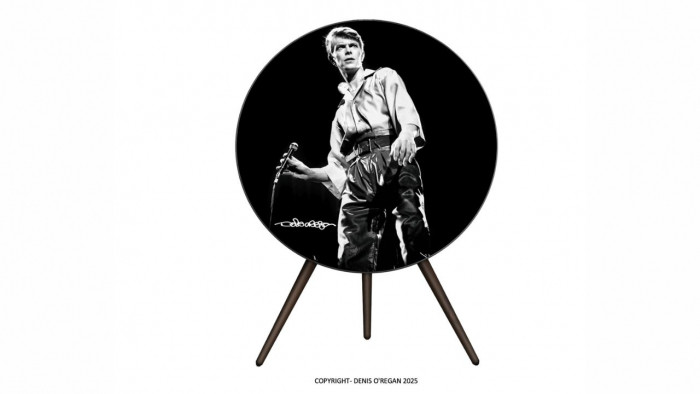A Ricky Gervais tutorial on dealing with Twitter abuse
When you’ve got 13 million followers, where do you start? The comedian explains...


Imagine checking your phone at the bleary-eyed beginning of the day and, rather than seeing two notifications from the regular lads, finding 850 tweets, all aimed directly at you. Most are well-meaning, but a significant number – let’s say 200 – are expletive-ridden jabs, telling you you’re an idiot who should keep his mouth shut. Like drunk guests talking over you at a party, many of these voices soon pick fights with one another, splintering off into never-ending sub-groups, their comments fading into incomprehensibility.
This is roughly what a normal day for Ricky Gervais on Twitter looks like.
“I do go on Twitter every day,” he says, holding a sofa cushion to his surprisingly small frame. An enormous fire is on the go, the temperature outside the hotel room below zero. A pot of tea and, at his request, two bananas are on the table. “It’s like plate-spinning for me,” he says of his approach to tweeting. “I make sure there’s something about a project I’ve got; I try to tell a joke – you’ve got to give them something back; and then that’s it. I’ll look at it when I get up, at lunchtime and at night.”
But with 13 million followers, an impishly outspoken attitude and several agendas he enjoys pushing, his mentions must be teeming with people wanting to tear a piece out of him. Where does he start? “You’ve got to treat it like reading every toilet wall in the world at once,” he says. Reading scrawls on toilet walls can be fun – as he says, there’s often some good stuff on there – but a lot of it is going to pass you by. Gervais finds that, when he wants something to do, he does “go looking for it”. In Humanity, his newest stand-up show, he talks about his inability to resist pointing out the stupidity of some of the people who confront him on Twitter: “I should have left it” becomes the refrain for every routine in which he tries to reason with someone who has tagged him in an unfathomably dumb comment.
With his mentions swarming with fundamentalist Christians, gun nuts and people who object to his comedy, only a man made of stone would be capable of resisting the bait. Gervais is no stranger to finding a particularly egregious tweet, amplifying it in the form of a retweet and letting a proxy war take care of itself. But when he notices someone directing something vicious at him, he will often feel sorry for them. “It’s like someone who lives in a bin shouting at you,” he says. He has no desire to be complicit in the hounding of a vulnerable person, “But if it’s an adult man who talks about shooting things, then I think I’m allowed to stand up to him. I make sure my targets are formidable foes.”

Gervais, laughing at you, on Twitter
His tactic recently has been to use, in his words, “kindness”. Often, as he says in Humanity, an objective statement of fact gets the job done as effectively as a confrontational or insulting remark. Onstage, an exasperated Gervais dissects what must be going through the minds of those who spew gibberish at him or mistake the subject of a joke for the object of a joke. He has always used language carefully and deliberately, and is at great pains to explain why, for example, it is ludicrous to object to ‘a rape joke’ for no other reason than it contains the word ‘rape’. “I never take a day off,” he tells me. “I never let my guard down.” If a tweet of his becomes a national headline, he makes sure he is able to justify it the following day.
Gervais claims that, unlike some famous people on Twitter, he isn’t a victim of trolling. (Nor, apparently, is he heckled when performing stand-up. He bands trolls and hecklers together in that they both crave attention. “They’re frustrated and they want a reaction. It’s basically saying ‘I woz ‘ere.”) The desire to say something provocatively horrible is, he says, 90 per cent of the reason Twitter exists. People aren’t listened to in real life and so use the platform’s meritocracy to try to force others – often celebrities – to pay attention. He thinks this need for attention goes a long way to explaining why people join neo-Nazi groups. At least that way they will be noticed. “Now I’m someone,” he imagines them saying. “Now I’m something.”
It is worth adding that, though Gervais says that Twitter takes up only a few minutes of his time per day, he is no stranger to proactively searching for his own name and replying to people who are talking about him. He may not be “obsessed”, as he believes is the impression of him, but he does not just reply to criticism explicitly levelled at him. It is interesting that he goes out of his way to track it down and acknowledge it (recently, he replied to a snarky comment with a press shot of him burning a $50 bill with a lit cigar).
For Gervais, Twitter abuse may be water off a duck’s back – or so he claims – but what about people who don’t have more followers than the population of Belgium? How should they treat the weirdos and trolls? Unless people are explicitly threatening you, he says, you shouldn’t let it get to you. Why? “They are living in a basement with their mum. They’re wanking into Jiffy bags and sending it to Beyoncé. This person is unhappy and they’re trying to make you as unhappy.”
Even encouraging a pile-on is a little like kicking a frog, he says, because what an abusive tweeter wants in the first place is the oxygen of publicity – precisely the oxygen you provide by acknowledging their nastiness. This, thinks Gervais, is one of the many reasons that it is not remotely worth spending time worrying about people who want to tell you they have a problem with your existence.
“If they’re just saying ‘You’re shit, you’re shit, you’re shit’ – block ’em,” he says. “They’re gone. They really are gone. Or laugh at them. They’re idiots. Honestly,” he says, “you might as well just shout back at graffiti.”
(Images: Getty)








